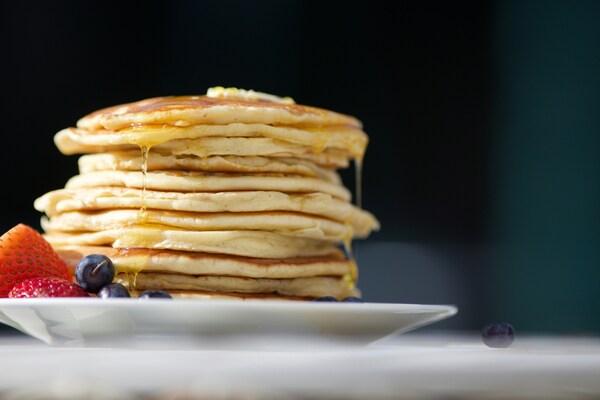
Pancakes are more than just food for breakfast, they are a global comfort dish, loved for their simplicity and how easy they are to change. Whether served with syrup, fresh fruit, or a dollop of whipped cream, pancakes have earned a special place in many hearts. Originating in various forms across different cultures, pancakes have a rich history, and their ongoing popularity shows universal appeal. The origins of pancakes can be traced back to ancient civilizations. Evidence suggests that the Greeks and Romans made early versions of pancakes, typically using flour, water, and oil, much like modern-day versions. The word “pancake” itself comes from the combination of “pan,” meaning cooking vessel, and “cake,” referring to a flat, round shape. As time passed, pancakes evolved, and each culture added its unique twist to the dish. In medieval Europe, pancakes became a traditional treat on Shrove Tuesday, the day before Lent, when people would use up their butter, eggs, and milk before fasting. Today, many countries continue to celebrate pancakes in their own ways, from French crêpes to Russian blini.
One of the reasons pancakes have remained so popular throughout history is their simplicity. The basic pancake batter typically contains flour, eggs, milk, and, in most cases, baking powder. These ingredients are easy to obtain and can be modified based on what is available. For example, gluten-free pancakes can be made using rice flour or almond flour, and vegan versions can be prepared with non-dairy milk and egg substitutes. This flexibility makes pancakes accessible to a wide range of dietary preferences and needs, contributing to their widespread appeal. Beyond their simplicity, pancakes can be easily altered. They can be sweet or savory, depending on what ingredients are added to the batter or what toppings are chosen.
Sweet pancakes are often paired with maple syrup, butter, or fruit, but they can also be stuffed with chocolate chips, nuts, or even whipped cream. Savory pancakes, such as those filled with vegetables or cheese, offer a different flavor profile, making pancakes suitable for every meal, from breakfast to dinner. Pancakes can be enjoyed with a variety of fillings and toppings, allowing for creativity and personalization. Another key aspect of the ongoing love for pancakes is the sense of nostalgia they create. For many, pancakes are a symbol of warmth and comfort, often associated with family gatherings, childhood memories, or cozy mornings spent in the kitchen. The process of preparing pancakes, mixing the ingredients, pouring the batter onto the pan, and watching them bubble and rise, creates a sense of satisfaction that is hard to match. The act of flipping pancakes is an enjoyable task, and the smell of pancakes cooking on the stove can make any morning feel special.
In conclusion, pancakes are much more than just food. They are a beloved cultural icon that brings comfort, creativity, and community. Their simplicity, and ability to create fond memories shows that pancakes will remain a staple in kitchens around the world for generations to come. Whether enjoyed with syrup or stuffed with savory ingredients, the pancake will continue to delight people across the globe.
Herb
Vocabulary
dollop (noun) - a large, shapeless mass of something, especially soft food
widespread (adjective) - found or distributed over a large area or number of people
staple (noun) - a food that is eaten frequently and in large quantities, making up a significant part of a person’s diet
savory (adjective) - spicy or salty, but not sweet
英語学習をフルサポート!
マンツーマン&コーチングの英会話教室
























